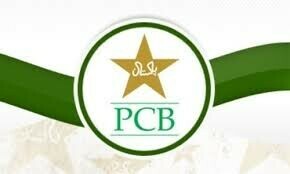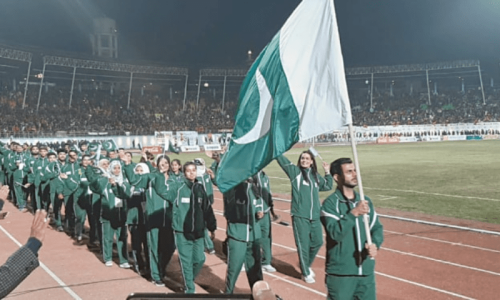WHILE the spirit of Zulfikar Ali Bhutto may be preventing the PPP from disintegrating, it has also stopped the party from evolving to keep up with the times.
The ossified slogan of ‘roti, kapra aur makan’ (bread, clothing and shelter) remains the party’s battle cry. The problem is that it resonates with fewer and fewer people when it is raised at every election. And the other slogan of ‘Bhutto zinda hai!’ (Bhutto lives!) reinforces the image of a party stuck in a time warp. Party leaders often speak of their ‘vote bank’, but as with other bank balances, you can draw down your credit to zero.
Now, the party has only knee-jerk responses to contemporary issues. For instance, its leaders think they are appealing to their base by resisting the privatisation of ailing public sector enterprises. But units like the railways, PIA and Pakistan Steel have been bleeding red ink for years, kept on life support by cash infusions provided by taxpayers. Had these entities been offloaded, the money saved could have been used to improve education and health. But because the party had nationalised private companies in the 1970s, this policy is now sacrosanct.
The PPP is a tired movement that has run out of steam.
When it was created in the 1960s, the PPP was a modern, progressive party with fresh ideas and solutions for the country’s problems. Now, it is a tired movement that has run out of steam. Most of the leadership is engaged in personal enrichment, while its few remaining idealists remain shackled to the party because they have nowhere else to go.
In a recent interview with Geo TV’s Hamid Mir, the de facto leader of the PPP, Asif Zardari, said proudly that his party had won the 2013 election in Sindh. This, then, is the sum total of the PPP’s ambitions: to remain in control of its home base to misgovern and milk it forever.
I suppose after five years of being battered and pushed around by the chief justice, the army chief and the media while he was president, Asif Zardari has had enough, and is now in his comfort zone. Out of the limelight and the crossfire, he is free to lord it over Sindh, master of all he surveys.
And yet, despite the PPP’s irrelevance, Pakistan needs a party of the left to speak for the weak and the vulnerable. The many different iterations of the Muslim League largely represent the Punjabi conservative rich and the middle class. Imran Khan’s PTI has attracted many urban youths and professionals to its ranks. But while its leaders know what they are against (corruption, poor governance, etc), they have been unable to articulate what they stand for.
Watching Britain’s Labour Party go through its leader’s resignation and an agonising appraisal over the causes of its recent defeat in the general elections, I was struck yet again by the absence of any accountability or introspection in the PPP. Here was a party that had been reduced from a major national presence to a provincial role, and we have yet to hear from its leaders why this fiasco happened.
Imran Khan’s rigging accusations have given the PPP leadership a handy excuse: Zardari claims that his party, too, has been diddled out of a bigger number of seats. However, anybody familiar with the shambles the party was in before the 2013 elections in Punjab knows that it got hammered fair and square.
But if not the PPP, who then will speak for the minorities, women and the poor? Sadly, the history of Pakistan’s left-wing parties is littered with ideological squabbles and jealousies, making them incapable of uniting into a meaningful grouping. And the PPP’s explosive emergence under Bhutto attracted many leftists to its ranks.
One reason the Labour Party gives for its defeat is that Ed Miliband went too far to the left, and thus failed to appeal to voters who aspired to buying their own homes and building up small businesses. The Blairite wing of the party had warned against going too far left. Indeed, Tony Blair won three elections by sticking firmly to the centre.
This may have been unpopular with its traditional socialist base, but electoral realities demand that parties evolve with demographic, social and economic changes. The alternative is defeat and irrelevance. There is currently an intense debate going on in the Labour Party over the new leader it should elect, and the direction the party needs to adopt.
But no such introspection troubles the sleep of the PPP leadership. Innovations such as party elections do not bother Asif Zardari or his son, Bilawal: Benazir Bhutto’s will was a blank cheque for them both.
In his TV interview, Zardari responded to a question about the army chief’s criticism of poor governance in Sindh by saying that Raheel Sharif should do his job, while the Sindh government went about its business. Luckily for all of us, Gen Sharif is a bit more efficient than the PPP’s provincial government.
Published in Dawn, May 30th, 2015
On a mobile phone? Get the Dawn Mobile App: Apple Store | Google Play










































